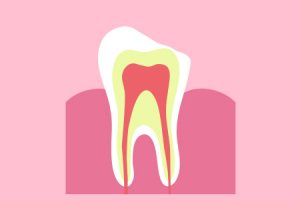
Repair a Chipped Tooth
We can help restore your perfect smile!
When you have a chipped tooth, it may initially be a shocking and distressing situation. However, especially for minor damage, there is usually little to no pain involved, and you’re in no immediate danger. A chipped tooth may result from any traumatic blow to the mouth, such as playing a contact sport, automobile or bicycle accident, or even eating hard or crunchy foods.
When you first chip a tooth, it may feel especially rough or jagged. This sensation is typically just your mouth and tongue getting used to the new surface and texture. Though it may cause mild discomfort, your mouth will adapt to the change rather quickly.
For severe chips and tooth fractures, you may want to seek treatment as soon as possible. Especially for front teeth (incisors), which are visible when smiling, chewing, or speaking, it may have a severe negative impact on your appearance.
Contact us today for an assessment, and we’ll help determine what treatment is right for you. Call (831) 424-0303.
How is it Treated?
There are several options to fix a chipped tooth. However, each case is slightly different, and we’ll need to evaluate your condition before the dentist provides a recommendation. Typically, for minor chips, we can use bonding to restore the tooth and reverse the damages. This composite resin material is strong and can match your tooth color to restore the damage seamlessly. For larger chips, fractures, or teeth that require extra durability (molars), we may decide that a dental crown is the best option.
Preventing a Chipped Tooth
The most important part of prevention is making sure you maintain excellent oral health. The better your routine for brushing and flossing at home (as well as regular dental checkups and cleanings), the more resistant your teeth will be to undergoing damage. Aside from that, you should always wear a protective mouthpiece when engaging in high-risk contact sports or activities. It’s the best way to protect your pearly whites! Additionally, avoid unnecessarily chewing on hard foods and crunching ice. Also, you should never use your teeth to open packaging, bite your fingernails, or other non-food items.
